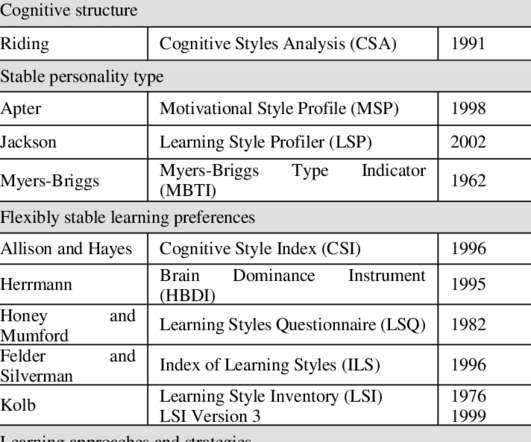Theories for the digital age: Connectivism
Learning with e's
OCTOBER 26, 2012
Much of this learning is informal, (Commentators such as Cofer (2000), Cross (2006) and Dobbs (2000) place the proportion of informal learning at around 70%) and is also generally location independent. These facets of modern life in combination have led educators to question the validity of pre-digital age learning theories.








































Let's personalize your content